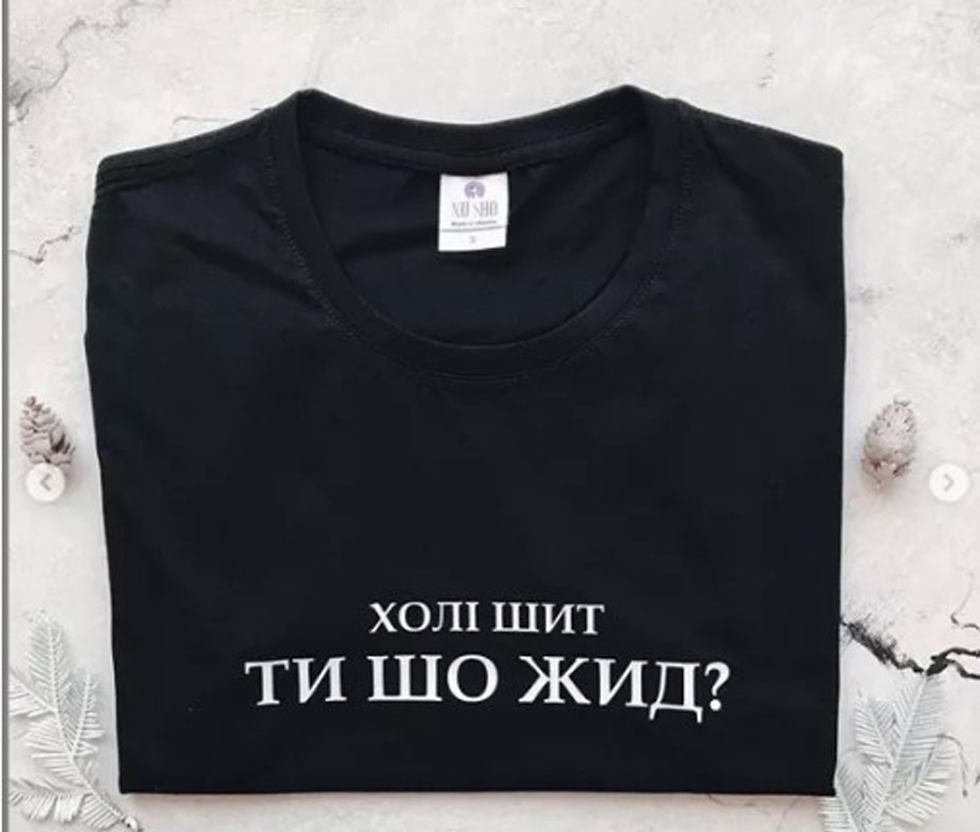The Jewish community in Ukraine is outraged over the sale of apparel with anti-Semitic slogan at one of the retail stores in the country.
The image of a shirt with a slogan reading, "Holy s**t, what are you? A Yid?" recently began circulating on Instagram after the store which has them for sale posted the picture on its social media account.
Local Jewish leaders demanded the store - located in the western city of Ternopil - immediately take the shirt off the market and issue an apology, threatening to contact law enforcement to conduct a criminal investigation into the matter.
Following their demands, the retailer took down the social media post, saying that the shirt did not mean to have any anti-Semitic undertones and apologized to anyone offended by it.
This is not the first time a clothing retailer has been caught selling apparel with distinctly anti-Semitic characteristics.
In 2014, Zara released a line of t-shirts reminiscent of prisoner uniforms worn by Jews in Nazi concentration camps during World War II.
The shirt was from the brand's kids range and was labeled as simply "a striped sheriff t-shirt," selling for NIS 79.90 ($23).
After days of consumer outrage, Zara took down the item, destroyed the inventory and issued an apology.
In 2016, retail clothing giant H&M apologized for putting on the market a women's scarf with a striking resemblance to a tallit, the fringed garment religious Jews wear during prayer.
Following a public outcry, the company removed the product from their Israeli stores and also issued an apology.
In October 2019, following a deadly synagogue shooting in the German city of Halle, Russian-German actress Palina Rojinski faced a backlash after she uploaded a post to Instagram promoting a joint venture with the Swedish clothing brand, while referencing the anti-Semitic attack.
"What happened in Halle and other places in our country is terrible," read Rojinski's post. "It seems inappropriate now to post an advertisement, but I chose to do so because this is something special - only today".
"It's about education and tolerance! The year 1989 had torn down walls and brought people together," said the actress, referring to the 1989 fall of the Berlin Wall, which divided the German capital between East and West for 28 years.
"The NEUNZEHNHUNDERT89 (nineteen-hundred-89) Unisex Capsule Collection, which I I'm releasing with H&M, would like to celebrate this positive approach with you."
In December 2019, The Auschwitz-Birkenau Museum criticized U.S. e-commerce giant Amazon for selling Christmas ornaments with images of the Nazi German death camp Auschwitz-Birkenau, calling them inappropriate.
Amazon has since taken down the ornaments from their page and published an apology, citing an algorithm error in the system.






